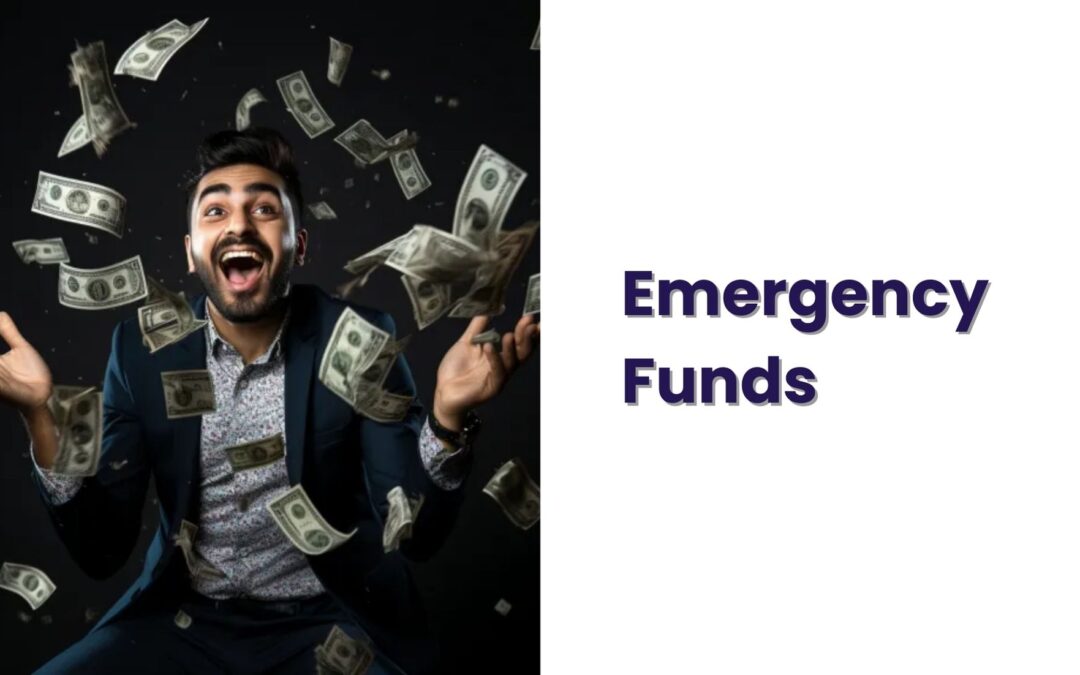In today’s unpredictable world, financial stability is more crucial than ever. One key component of a robust financial plan is often overlooked but holds immense importance — the Emergency Fund. Let’s delve into the essentials of what an Emergency Fund is and why it’s a non-negotiable aspect of financial well-being.
You can start saving money in 24k digital gold. Download the Jar App now.
Understanding the Emergency Fund
It is your financial safety net, a cushion to soften the blow of unexpected expenses. It’s not a matter of ‘if’ but ‘when’ unforeseen circumstances arise — be it a sudden medical expense, car repairs, or unforeseen job loss. Your Fund is there to catch you when life throws a curveball.
The Core Purpose of an Emergency Fund
The primary purpose of a Fund is to provide immediate financial relief when faced with unexpected situations. It ensures that you can cover essential expenses without resorting to high-interest loans or disrupting your long-term financial goals.
Why Do You Need An Emergency Fund?
1. Financial Resilience
Life is unpredictable, and financial challenges can arise at any moment. An Emergency Fund empowers you to navigate these challenges without compromising your financial stability. It serves as a shield, allowing you to bounce back swiftly and continue pursuing your goals.
2. Peace of Mind
Knowing you have a financial safety net brings unparalleled peace of mind. Whether it’s a sudden health crisis or a necessary home repair, having funds readily available eliminates the stress associated with finding quick solutions. Your Emergency Fund becomes a source of tranquility in times of turmoil.
3. Avoiding Debt Traps
Without an Emergency Fund, individuals often resort to credit cards or loans to cover unforeseen expenses. This can lead to a vicious cycle of debt with high-interest rates, making it challenging to break free. An adequate fund acts as a preventative measure, saving you from falling into these debt traps.
4. Opportunity to Invest
Having an Emergency Fund doesn’t mean stashing money under your mattress. It opens the door to strategic investments and wealth-building opportunities. Knowing your basic needs are covered allows you to explore avenues for growing your wealth without compromising your financial security.
How to Build and Maintain Your Emergency Fund
1. Set a Realistic Goal
Begin by determining how much you need for three to six months of living expenses. This should cover necessities like rent or mortgage, utilities, groceries, and insurance.
2. Consistent Contributions
Building your Fund is a gradual process. Set aside a fixed amount from each paycheck dedicated to this fund. Consistency is key to ensuring it grows steadily over time.
3. Separate Account
Keep your Emergency Fund in a separate account to avoid temptation. This separation also adds a psychological barrier, reinforcing the fund’s purpose as a safety net rather than discretionary spending.
4. Regularly Review and Adjust
Life circumstances change, so should your Emergency Fund goals. Regularly review your fund’s adequacy and make adjustments based on changes in income, family size, or other significant life events.
In conclusion, an Emergency Fund is not a luxury but a necessity in today’s fast-paced and uncertain world. It provides the financial resilience needed to navigate unexpected challenges while offering peace of mind and the opportunity for financial growth. Make building and maintaining your Fund a priority, and you’ll be laying the foundation for a more secure and prosperous financial future.
FAQs
Q1: What is the purpose of an Emergency Fund?
A1: A Fund serves as a financial safety net, providing immediate relief in the face of unexpected expenses, ensuring you can cover essential needs without resorting to high-interest debt.
Q2: How much should I aim to save in my Emergency Fund?
A2: Aim to save three to six months’ worth of living expenses, covering essentials like rent, utilities, groceries, and insurance to ensure comprehensive financial security.
Q3: Can I use my Emergency Fund for non-emergencies?
A3: It’s recommended to reserve your Fund strictly for genuine unforeseen circumstances, avoiding the temptation to dip into it for non-urgent expenses.
Q4: How often should I review and adjust my Emergency Fund?
A4: Regularly review your fund’s adequacy, making adjustments based on changes in income, family size, or significant life events to ensure it remains aligned with your evolving needs.
Q5: Can I invest my Emergency Fund?
A5: While the primary purpose is liquidity, once adequately funded, your Fund can offer the opportunity for strategic investments without compromising your financial security.

